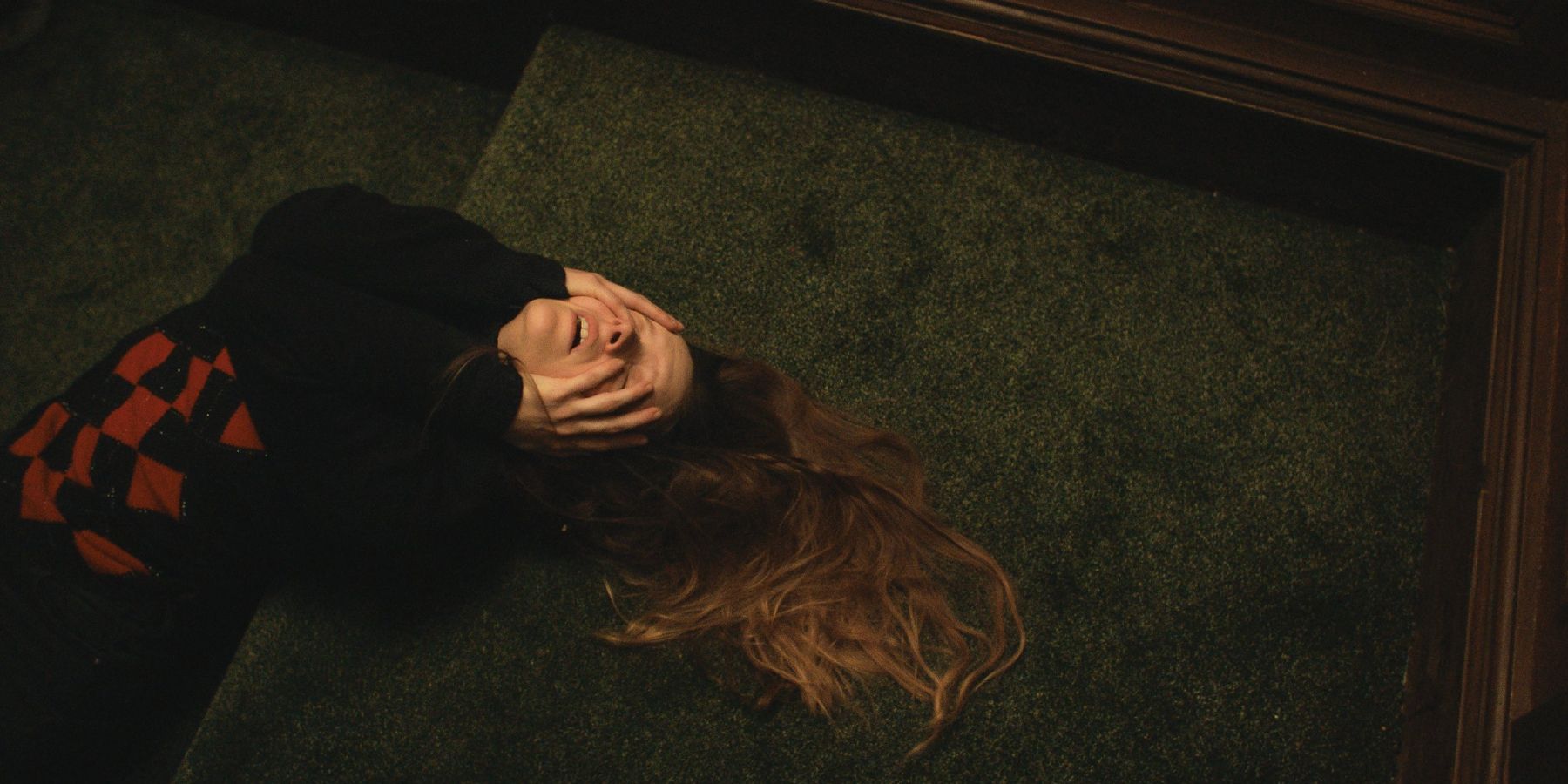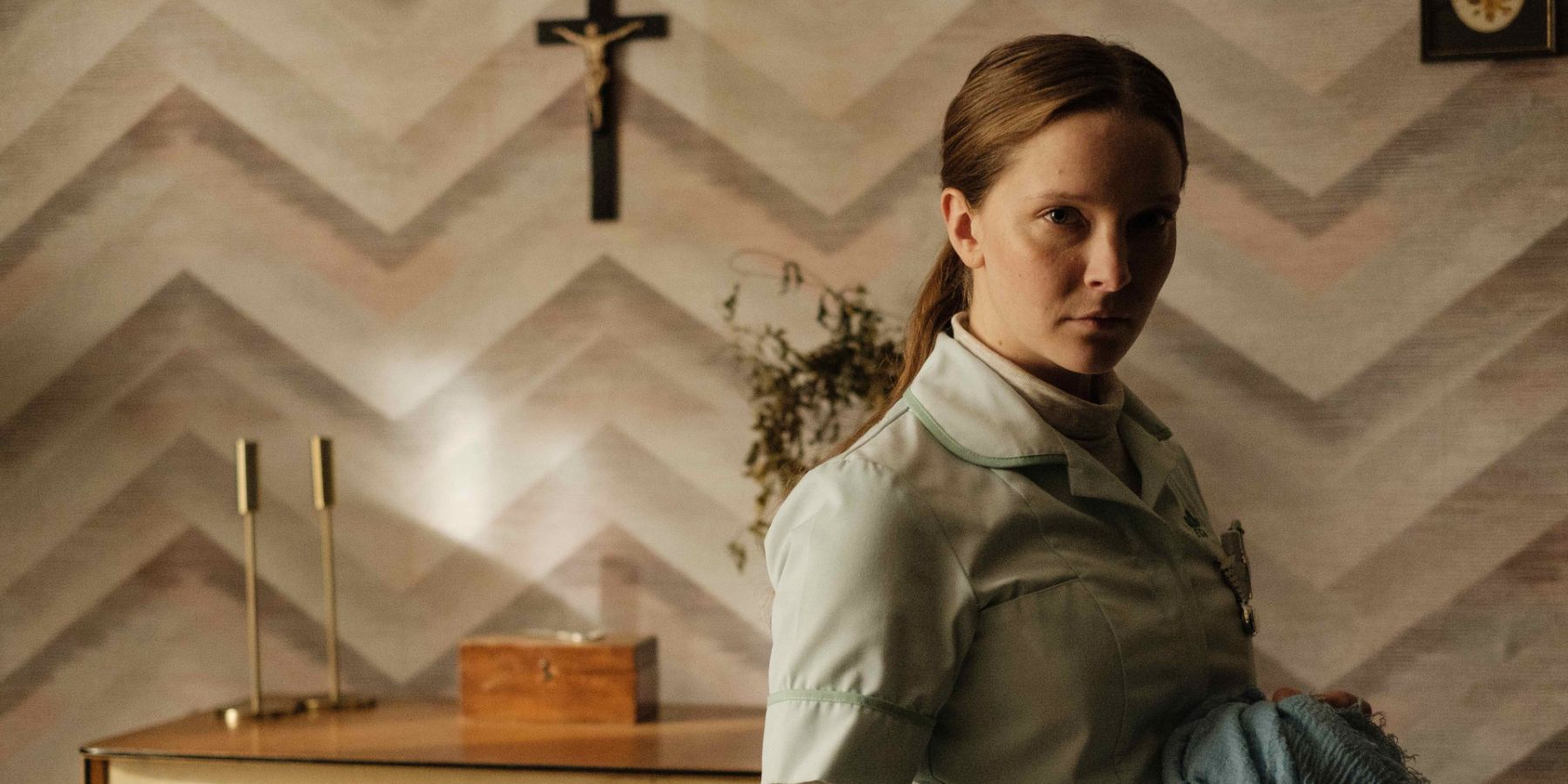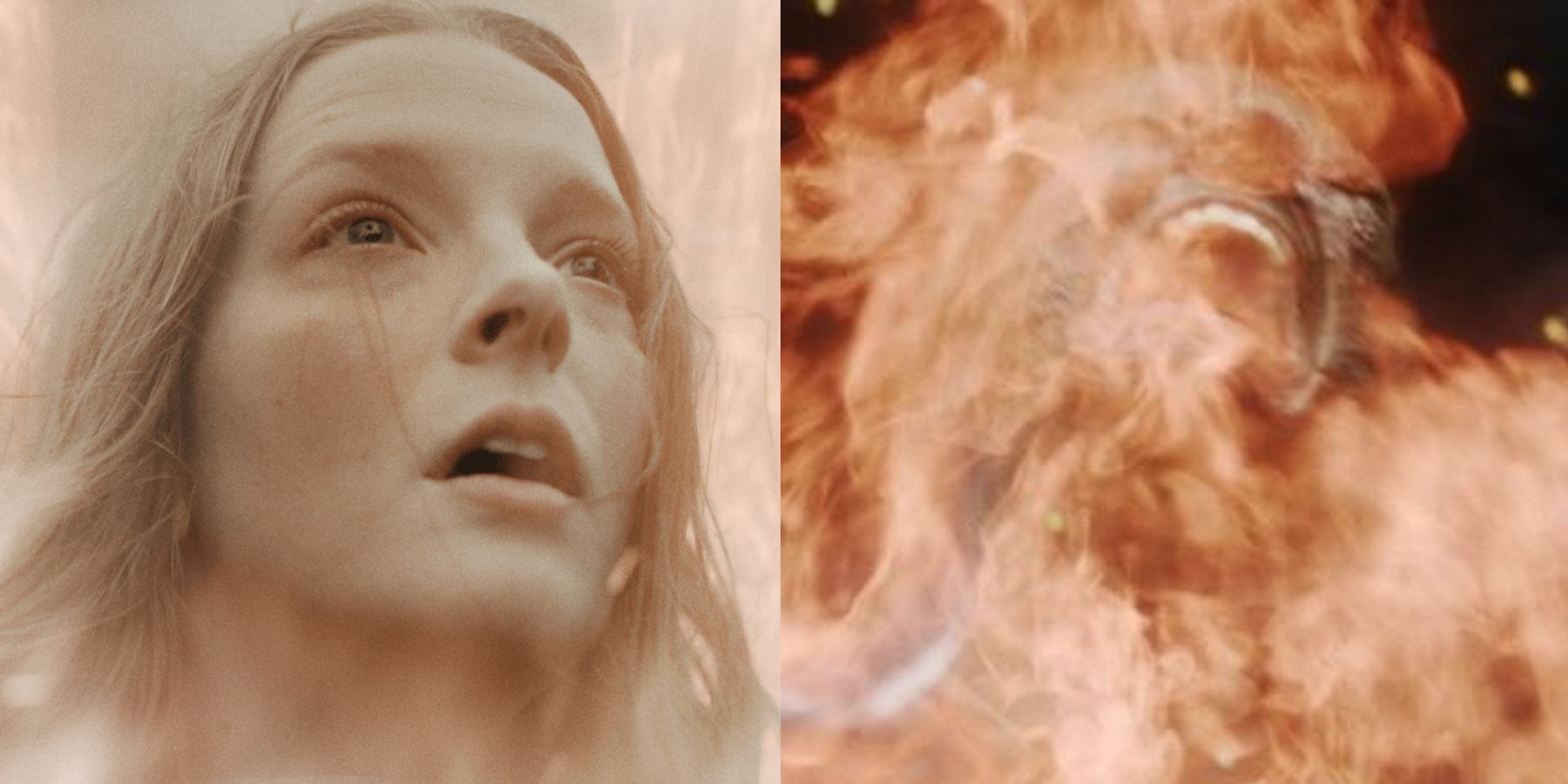Written and directed by Rose Glass in her directorial debut, Saint Maud is a 2019 psychological horror movie that incorporates body horror with themes of religion and mental illness. A critical success, the movie was nominated for two BAFTAs and took home the titles of Best Debut Director and Best Cinematography at the British Independent Film Awards. Distributed by A24, Saint Maud sits well within the independent company's roster (The Killing of a Sacred Deer, Midsommar, Lamb); as with these horrors, it is a deeply unsettling watch that plays like a fever dream.
For the majority of Saint Maud, audiences are kept at arm's length — never really knowing what is real or not. The curtain is forcibly removed, however, in its terrifying final seconds when the titular character's delusions are confirmed with gruesome conviction.
Maud's (Morfydd Clark) descent into madness is a slow and steady one. In the audiences' first glimpse at the character, she is covered in the blood of a dead patient. The movie then skips to the present where she is living as a devout Roman Catholic. With her suitcase packed, she is ready to move to the English seaside town of Scarborough where she will begin her new job as a palliative carer for Amanda (Jennifer Ehle), an ex-dancer/choreographer who has stage four lymphoma. Extroverted and hedonistic, Amanda couldn't be any less like Maud; still, despite their differences — or perhaps because of them — the two develop a strange and sensual relationship that leads the latter to become obsessed with the former.
Discovering Amanda is an atheist, Maud believes it is her purpose to save her patient's soul from eternal damnation and she stops at nothing to achieve this. Maud tells Amanda that she can feel and hear God and it appears she has passed this gift onto Amanda when, during their first prayer together, they experience godgasms (a word coined by Glass in a Vulture interview). Soon after, Amanda refers to Maud as "Saint Maud:" a title that the carer takes very seriously.
But Maud wasn't always devoutly religious. In fact, she wasn't always "Maud" at all. As her old colleague Joy (Lily Knight) reveals, Maud was going by her birth name Katie at her last job. Reluctant to discuss her new job, Maud looks offended when Joy asks "And they [Amanda] know what happened?" The answer of which is no; neither Amanda nor the audience know at this point, though, from the opening scene, the worst is expected. Murder? Manslaughter?
Eventually, the truth is revealed in a traumatic flashback: Maud was attempting CPR on a dying patient when the person's chest collapsed from the pressure. From Joy's question "What happened before wasn't your fault, I know that, you do too right?" and Maud's non-response, the implication is that Maud hasn't forgiven herself for the accident and probably can't until she has saved Amanda and thus atoned for her past. This would explain her extreme reaction when Amanda promptly fires her, putting a stop to her mission. Maud questions her faith post-firing and audiences catch a glimpse of Katie when, that night, she lets loose at a pub and goes home with a stranger: two events which end disastrously. As Katie, Maud struggles to make friends and her hook-up ends in rape.
Speaking of this sequence Glass tells Elle, "That whole night and the scenes leading up to that moment, the intention at that point [is that] she's had her holy mission to save Amanda pulled out from under her feet ... For me, it was important for people to realize what her life is like without faith and behind this strange veneer she's created for herself. It's someone who's flailing and in desperate need of interaction and communication and support but doesn't know how to go about asking for it and ends up slipping back into self-destructive patterns."
Desperate and flailing are apt words to describe Maud who is clearly mentally disturbed. Not only does she practice asceticism — sticking pins in her shoes and burning herself — but she also sees and hears things that aren't there, such as vortexes in the sky and God's voice. To be sure, audiences are never quite certain of Maud's insanity until the end. Amanda's reveal that she never felt God's presence seems like confirmation enough, but then she (Amanda) becomes possessed and Saint Maud looks to be heading down a cliché route. (Retrospectively, it is clear that Maud manifested this image of Amanda to suit her own warped view of reality).
Bonafide confirmation comes the morning after Maud faces off with, and stabs, Amanda. In her final act of faith, she dons a makeshift robe and rosemary beads to the beach and self-immolates in front of an audience. This sequence is played from two perspectives: Maud's and reality's. The first paints a biblical scene of Maud developing wings as onlookers fall to their knees in worship, whereas the second, which can only be described as horrific, sees Maud's flesh melt away as she lets out a piercing scream. Lasting all of two seconds, the latter has the same effect as a jumpscare — though its impact is felt long after. As the credits roll and audiences reckon with the fact they slipped with Maud, a lingering sadness is felt. Maud wasn't a Saint after all, but a lonely young woman who, following traumatic events, lost her mind along with her identity. And that is the true horror of Saint Maud.
Saint Maud is available to watch on Amazon Prime.






